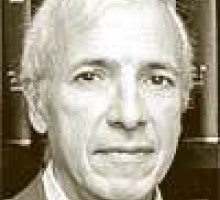
Reviews
The Informal Economy makes it clear that the economic arrangements recorded in official statistics are not the only ones worth studying.
[An] intensely interesting and readable set of case studies... The 'moving boundaries' of definition make is possible to include an extraordinary diversity of materials from the cocaine economy of Bolivia to the vibrant small-firm economy of the Italiam 'Red belt,' from Malaysia to Mexico City to Miami and New York. There are interesting data on informal personal incomes and outlays of the Soviet population, and an essay on the 'informalization' of the British economy under Thatcherism.
Book Details
Acknowledgments
Introduction
Part I. Overview
Chapter 1. World Underneath: The Origins, Dynamics, and Effects of the Informal Economy
Part II. Urban Labor Markets
Chapter 2. Employment Structure, Life
Acknowledgments
Introduction
Part I. Overview
Chapter 1. World Underneath: The Origins, Dynamics, and Effects of the Informal Economy
Part II. Urban Labor Markets
Chapter 2. Employment Structure, Life Cycle, and Life Chances: Formal and Informal Sectors in Guadalajara
Chapter 3. New York's Informal Economy
Chapter 4. Informal Sector versus Informalized Labor Relations in Uruguay
Chapter 5. The Articulation of Formal and Informal Sectors in the Economy of Bogotá, Colombia
Chapter 6. Miami's Two Informal Sectors
Part III. Black Money, Black Markets
Chapter 7. Cocaine, Informality, and the Urban Economy in La Paz, Bolivia
Chapter 8. Informal Personal Incomes and Outlays of the Soviet Urban Population
Part IV. Industrial Restructuring and the Informal Sector
Chapter 9. Subcontracting and Employment Dynamics in Mexico City
Chapter 10. The Informal Economy and the Development of Flexible Specialization in Emilia-Romagna
Chapter 11. Informalization in the Valencian Economy: A Model for Underdevelopment
Chapter 12. Industrial Subcontracting and the Informal Sector: The Politics of Restructuring in the Madrid Electronics Industry
Part V. The Informal Sector and the State
Chapter 13. Informalization at the Core: Hispanic Women, Homework, and the Advanced Capitalist State
Chapter 14. Industrial Development, Ethnic Cleavages, and Employment Patterns: Penang State, Malaysia
Chapter 15. The "British Experiment": Structural Adjustment or Accelerated Decline?
Conclusion
List of Contributors
Index






